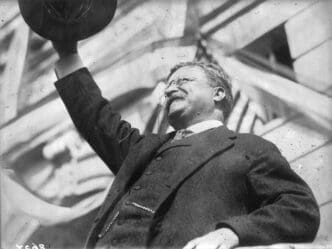On December 10, 1906, Theodore Roosevelt became the first American to be awarded the Nobel Peace Prize for his crucial role in mediating peace during the Russo-Japanese War.
Roosevelt, the youngest U.S. president at the time, assumed office following the assassination of William McKinley. His leadership was marked by popularity and progressive reforms, yet his diplomatic achievements on the international stage were equally significant. In the early 20th century, tensions between Russia and Japan escalated into a full-scale war, primarily over imperial ambitions in East Asia. The conflict, known as the Russo-Japanese War, lasted from 1904 to 1905 and brought significant loss to both sides.
Understanding the dire need for resolution, Roosevelt offered to mediate the peace negotiations, which eventually led to the Treaty of Portsmouth. This treaty effectively ended the hostilities and was hailed as a diplomatic success. Roosevelt’s involvement demonstrated his belief in diplomacy and international cooperation, principles that were relatively new in American foreign policy at the time.
The peace talks were held in Portsmouth, New Hampshire, where both Russian and Japanese delegations convened under Roosevelt’s encouragement. His approach was characterized by behind-the-scenes diplomacy, where he facilitated direct communication between the warring nations, avoiding public spectacle and maintaining focus on peace.
Roosevelt’s efforts were recognized globally, marking a significant milestone not only for his presidency but for the United States as well. The Nobel Peace Prize awarded to him in 1906 underscored the importance of diplomatic negotiation in resolving international conflicts. This accolade elevated Roosevelt’s status as a world leader and set a precedent for future American engagement in global peacekeeping initiatives.
Roosevelt’s Nobel Peace Prize stands as a testament to his skill in diplomacy and his commitment to fostering peace on the international stage, a legacy that continues to influence U.S. foreign policy.
Source: Sun-sentinel








